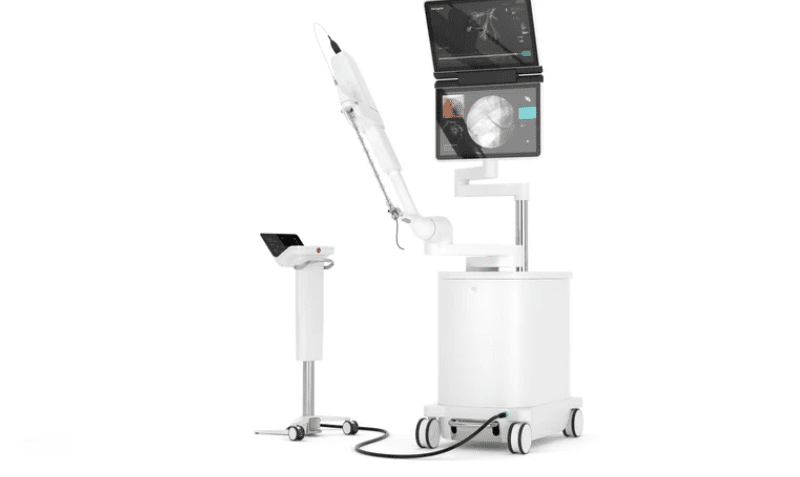Too many cooks in the kitchen may spoil the broth, but medtech developers are betting that adding increasingly more tech tools to the operating room will only improve procedure success rates.
Intuitive, for example, has already seen significant improvements in bronchoscopy yield rates with the help of its Ion endoluminal system. Early studies show that the robotic-assisted platform can achieve a diagnostic yield of around 80%—indicating its sensitivity in detecting malignant nodules in the lungs—compared to rates that typically fall closer to 70% for standard bronchoscopy methods.
But the surgical robot maker is taking the platform a step further, teaming up with Siemens Healthineers to fold in additional imaging support throughout the lung biopsy process, with an aim of making the procedure even more accurate.
The FDA, too, is on board with this approach. On Thursday, the companies announced that the agency has cleared the integration of Intuitive’s Ion platform with Siemens’ Cios Spin mobile cone-beam CT imaging technology.
The Ion platform centers on a robotic catheter that’s ultrathin, flexible and equipped with a wide-view camera probe to help surgeons send the biopsy needle more easily through anatomical twists and turns toward the periphery of the lungs.
The Cios Spin system, meanwhile, is a C-arm imaging device on wheels. It offers both 2D and 3D X-ray imaging, the latter of which is designed to give surgeons a more detailed view of patients’ anatomy and the placement of catheters, implants, screws and other devices within the body.
When the two systems are combined, the Siemens imaging tools allow surgeons to perform a more accurate lung biopsy using the Ion robotic catheter, ensuring that the needle actually reaches a designated suspicious nodule. Integrating the technologies resulted in an improvement of up to 10% in the diagnostic yield of robotic-assisted bronchoscopies, according to a small-scale initial study cited by the companies.
The ultimate goal of the team-up is to improve diagnosis rates for lung cancer, which is currently the most common form of cancer in the world and the leading cause of all cancer deaths. A more accurate biopsy system could drive up the number of early diagnoses and, therefore, the disease’s survival rate.
“The integration between Ion and Siemens Healthineers’ Cios Spin provides additional information that may help physicians gain more confidence that they are collecting tissue at the right location,” said Oliver Wagner, M.D., a VP at Intuitive and medical officer of its endoluminal division. “There’s clear patient benefit in these technologies working together to help improve accuracy, which could help get answers sooner.”

